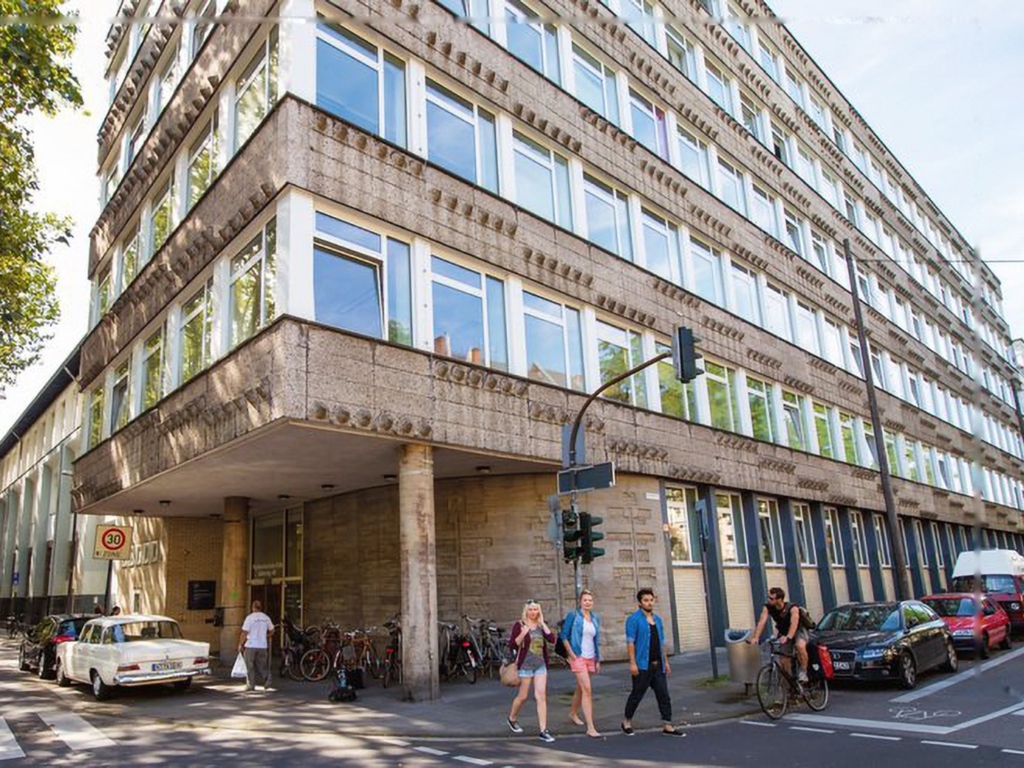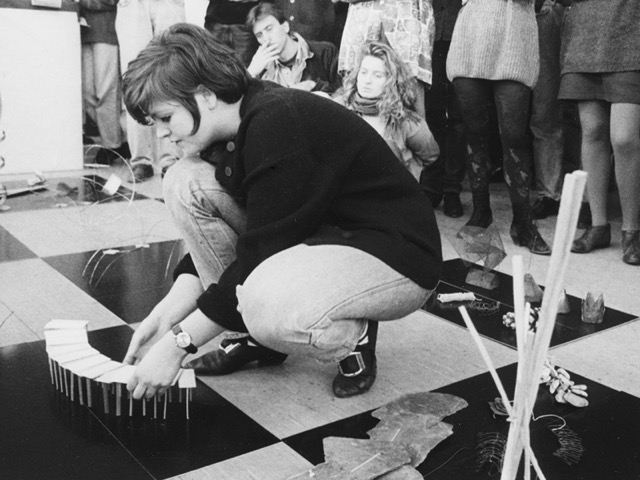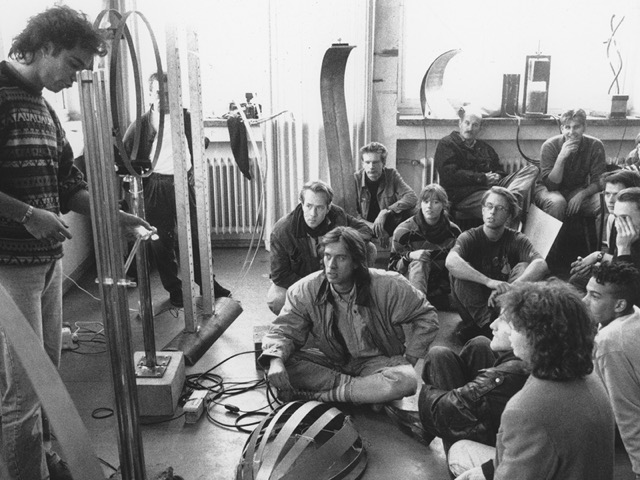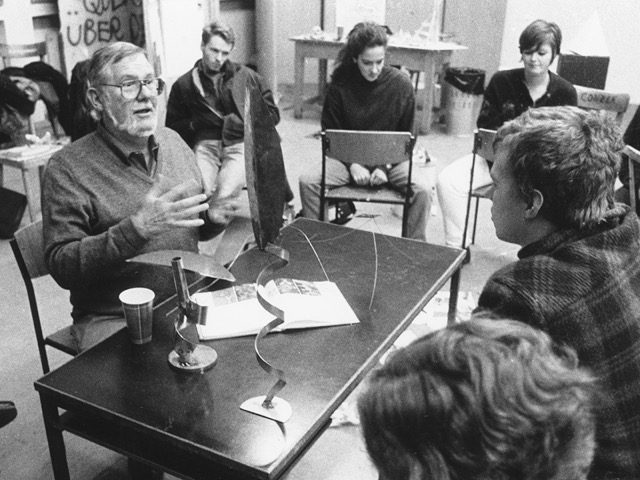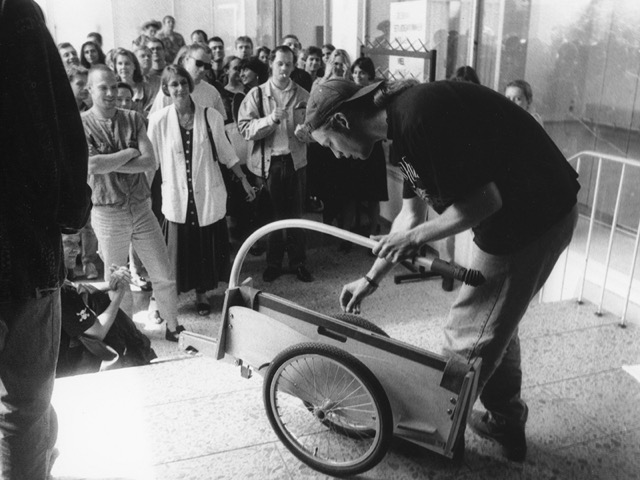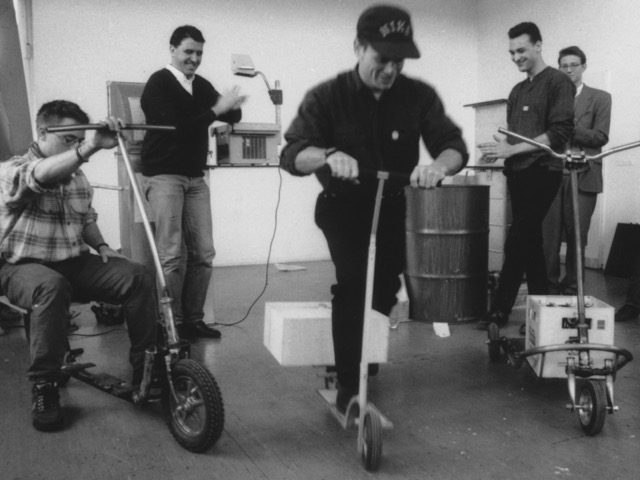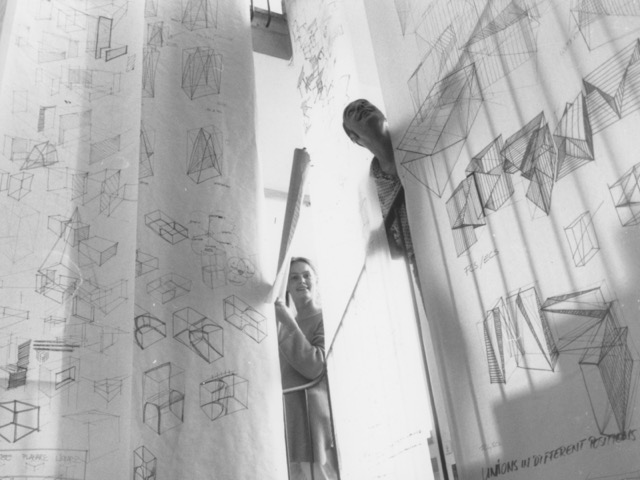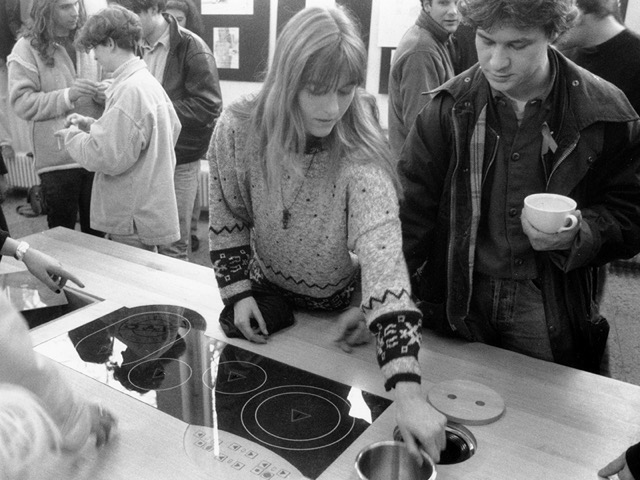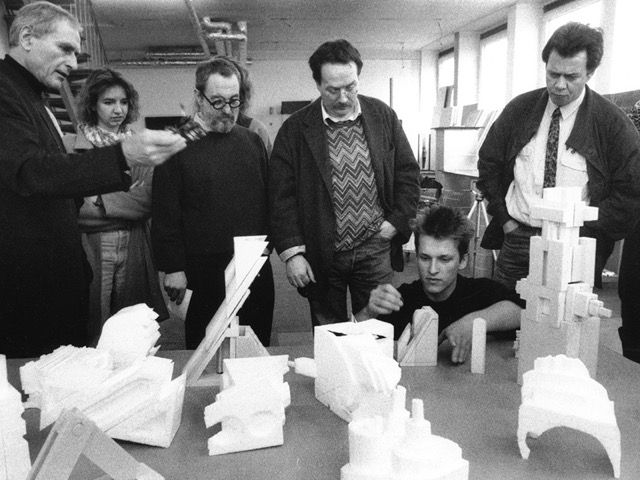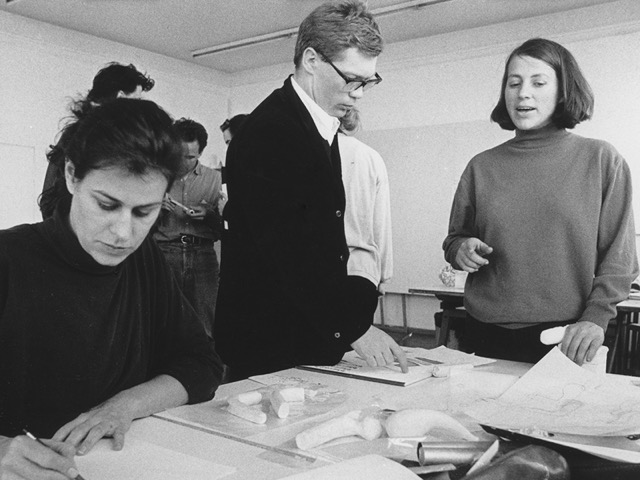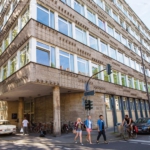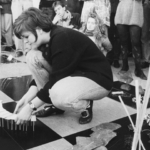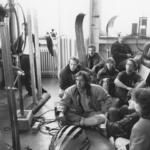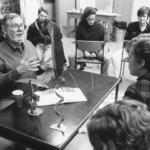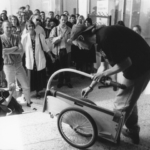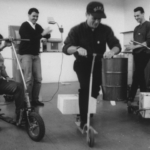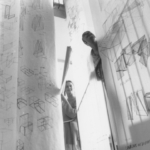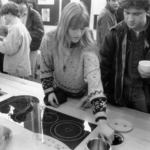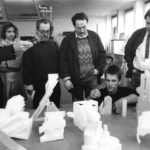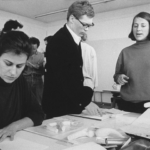On 21 October 1991, the first 60 students started their studies in the newly founded Design Department of the Cologne University of Applied Sciences (now TH Köln). In Ubierring 40, the building that once housed the Kölner Werkkunstschulen, a new way of studying design – the so-called ”Cologne Model“ – had it’s beginning.
Together with the founding dean and design theorist Prof. Dr. Michael Erlhoff, the early professors: Heinz Bähr, Thomas Bley, Hans Buschfeld, Günter Horntrich, Heiner Jacob, Wolfgang Laubersheimer and Brigitte Wolf developed a curriculum that radically broke with conventional notions of design education. The distinction between communication and product design was abandoned in favour of an expanded understanding of design. Students were supposed to undergo all the different design disciplines and come to a holistic and integrative understanding of the design of everyday culture. The common seperation into undergraduate and graduate studies was discarded and new reference-scientific perspectives were included, from the first day of studies.
First-semester students were to work in projects on an equal footing with their fellow students from higher semesters and teachers. Students had the freedom to choose their projects and courses individually and to shape their own studies..
Completely new teaching areas, such as Ecology and Design (Prof. Günter Horntrich), Production Technology (Prof. Wolfgang Laubersheimer), Design Concepts (Prof. Thomas Bley) and Design Management (Prof. Dr. Brigitte Wolf) were offered and refined over the years to include further innovative perspectives:
- Interface Design (1993–2003 Prof. Dr. Gui Bonsiepe, since 2001 Prof. Philipp Heidkamp),
- Gender and Design (1995–2015 Prof. Dr. Uta Brandes),
- Service Design (since 1995 Prof. Birgit Mager),
- Design Concepts (since 2000 Prof. Jenz Großhans und Prof. Paolo Tumminelli),
- Design for Manufacturing (2002–2020 Prof. Hatto Grosse),
- Typografie und Layout (since 2002 Prof. Iris Utikal und Prof. Michael Gais),
- Audiovisual Media (2003–2011 Prof. Björn Bartholdy),
- Design & Economy (since 2010 Prof. Dr. Oliver Baron),
- Identity and Design (since 2010 Prof. Andreas Wrede),
- Designtheory and Research (since 2013 Prof. Dr. Carolin Höfler)
- Interaction Design (2013–2017 Prof. Andreas Muxel, since 2018 Prof. Dr. Lasse Scherffig)
- Image & Motion (since 2016 Prof. Nina Juric),
- Ecology and Design (since 2017 Prof. Katrin Müller-Russo).
- Designing Technological Futures (since 2020 Prof. Dr. Laura Popplow)
In the course of the last three decades, not only the name has been changed– since 2002, KISD (Köln International School of Design) is an institute of the Faculty of Cultural Sciences at the TH Köln – but the profile of the study model has also been further sharpened and the study programme consistently internationalised. It is therefore not surprising that the design education at KISD has attracted worldwide attention and replication and has received several awards. Likewise, the graduates are regularly awarded prizes. After graduation, they work in leading positions in society, culture and business, set up their own offices or lay the foundation for an academic career.
Currently, 520 students from 21 countries study at KISD. For forty percent of international students, KISD is an academic home and almost all students spend one or more semesters at one of the 77 partner universities abroad.
In addition to the Bachelor of Integrated Design programme, KISD offers its students a Master of Integrated Design as well as MA Double Degree programmes with partner universities in China, Japan and Taiwan. With the ”Master Product Design and Process Development“ and the Bachelor’s programme ”Code & Context“, KISD participates in future-oriented and interdisciplinary study programmes at the TH Köln. Its lecturers are part of university research centres or run their own research and cooperation projects. Since 2021, KISD has been a partner in a cooperative DFG Research Post-Graduate Group with the University of Cologne and the Academy of Media Arts. In the future, this will give rise to doctorates in art and design studies.
In short: what began 30 years ago with a great deal of enthusiasm and commitment has developed into a permanent institution in design science and education and has made Cologne a fixed point in international design. Despite all its growth, success and constant development, the KISD has remained an open place of exchange. Alumni, students, people interested in design and studies, and friends from all over the world come together for Friday presentations, lectures, conferences and the KISDparcours (the annual presentation of final theses) to discuss design as an integral part of our culture and to explore the question of how we want to shape the future.
